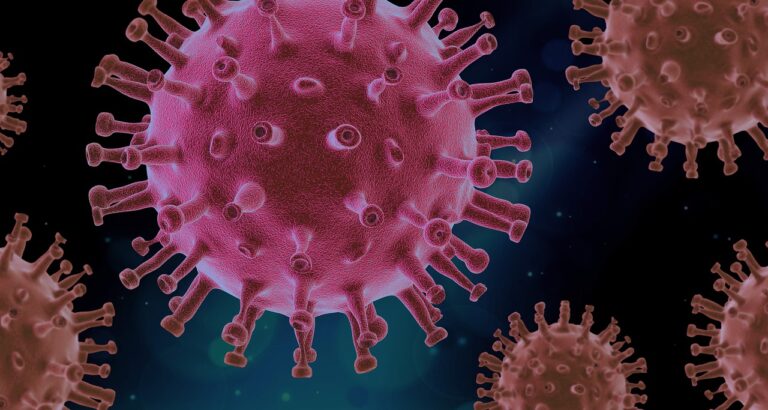Food allergy or Food intolerance: which one do I have?
The week commencing 14 May is Food Allergy Awareness Week. Many people use the terms “food intolerance” and “food allergy” interchangeably, but they are two very distinct conditions. Both involve an adverse reaction to certain foods, but the mechanisms and symptoms involved are quite different. The symptoms of food allergies are often much more severe, and they can be life-threatening in some cases. Food intolerances are much more common than food allergies and typically cause milder digestive symptoms such as bloating and diarrhea. This article explores the differences between food intolerances and food allergies and what they mean for your digestive health.
Food Intolerance:
Food intolerances are non-allergic reactions to certain foods that can result in digestive symptoms. Food intolerances occur when the body has difficulty digesting or processing certain foods, leading to discomfort and digestive upset. These conditions are often caused by a deficiency of specific enzymes or a lack of ability to process or digest certain compounds. Common examples of difficult-to-digest foods include dairy products (lactose intolerance), wheat products and other gluten-containing foods, onions, and garlic. In other cases, food intolerances may be due to chemicals or additives in the food such as artificial sweeteners, histamine, monosodium glutamate (MSG), or artificial food colors, preservatives, or flavor enhancers. People often experience multiple food intolerances to a number of different foods.
Symptoms of food intolerance can vary but often include bloating, gas, diarrhea, abdominal pain, and sometimes nausea. Symptoms can occur soon after eating the offending food or may take several hours to manifest. Symptoms might not occur if only a small amount of the food is eaten.
Food intolerances may be more common in people who suffer from IBS. In some cases, a gut infection such as food poisoning or gastroenteritis can result in the development of food intolerances.
Many other diseases of the digestive system can cause very similar symptoms such as celiac disease, IBS, Crohn’s disease, and small intestinal bacterial overgrowth (SIBO). Dr Neil can help determine if your symptoms are due to intolerances or due to other digestive diseases.
Food Allergy:
A food allergy is a severe immune response to certain foods. Food allergies occur when the immune system overreacts to a specific protein in a food, triggering an immune response. The body then releases histamine and other chemicals, leading to symptoms.
Common food allergens include peanuts, tree nuts, shellfish, fish, eggs, milk, soy, and wheat. Even a tiny amount of the offending food can trigger an allergic reaction.
Symptoms of food allergies can range from mild to severe and typically occur rapidly after eating the offending food. Symptoms of food allergies can include:
- Hives or itching
- Swelling of the lips, tongue, or throat
- Difficulty breathing or wheezing
- Abdominal pain or vomiting
- Anaphylaxis and loss of consciousness
Testing for food allergies and food intolerances:
The first-line test for food allergies is usually a blood test looking for elevated antibody levels to different types of food. This is usually very accurate and can help identify specific food allergies. Several companies and clinics also offer food intolerance blood tests. These intolerance blood tests are not based on good scientific evidence and are generally not recommended. Breath tests can be used to help identify lactose intolerance or fructose intolerance, but for most food intolerances there are no accurate or specific laboratory tests.
As food allergies and food intolerances are two distinct conditions with different causes, the tests for the two conditions are not interchangeable. Tests for food allergies will not give information about food intolerances and vice versa.
How are food intolerances treated?
The main way of treating food intolerances is to remove possible culprit foods from the diet (elimination diet) and then reintroduce the foods in small quantities. You may benefit from working with a registered dietitian to identify foods to avoid and ensure that you’re getting all the nutrients your body needs. The low FODMAP diet is one such elimination diet that removes a large number of foods that can be difficult to digest from the diet for a period of time before careful stepwise reintroduction. Symptoms of lactose intolerance can be avoided by switching to lactose-free milk and dairy products, or by taking lactase, an enzyme supplement that helps the body digest milk products. Medication can help temporarily reduce the symptoms of food intolerances. Treatment of coexisting IBS may also help reduce food intolerance symptoms.
Conclusion:
Food intolerances and food allergies are two distinct conditions that can cause adverse reactions to certain foods. While food intolerances can be uncomfortable, food allergies can be life-threatening and so it’s important to know the difference between the two.
If you experience digestive symptoms after eating, consider keeping a food diary to track your symptoms and the foods you eat. This information can be helpful in identifying the foods that may be causing your symptoms. If you suspect you have a food allergy or a food intolerance, Dr Neil can arrange the necessary tests to help make the diagnosis and if necessary, arrange referral to an Allergy specialist or a registered dietician. Take control of your digestive health today.
For Queries regarding Gastroenterology feel free to reach out on
hello@drneildubai.com
or
Whatsapp me at +971506708472
or
Visit me at @healthbayclinic ‘s Day Surgery Center, 977 Al Wasl Road, Dubai







